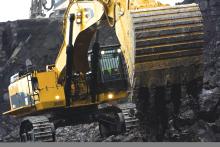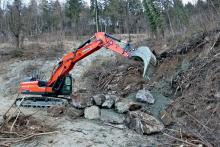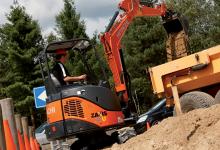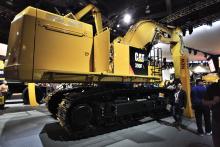Caterpillar's new 390DL excavator is said to delivers higher performance and increased durability over the 385C model it replaces. Power comes from an 18.1litre Cat C18 ACERT diesel, which delivers 390kW and features advanced electronic control, precise fuel delivery and refined air management. Upgrades to the 390DL's implement hydraulics allow the excavator to deliver greater digging and lifting forces than its predecessor. Increased breakout force promotes faster trenching and loading cycles plus stronger

Caterpillar's powerful 390D offers versatility with a factory fitted universal quick-coupler circuit available
The machine has an improved undercarriage with redesigned links that operate with lower stress, forged idlers for improved durability and heavy-duty track rollers and carrier rollers. In addition, the recoil spring has been lengthened, giving the recoil mechanism greater impact-absorbing capability to protect the undercarriage from shock loads. This is fabricated with thicker reinforcing plates at critical locations, while thicker plates are fitted at the boom-foot mounting in the upper frame as well as in the rails and bottom pan to accommodate the 12.4tonne counterweigh, which is 6% heavier than the 385C's counterweight. Booms and digging arms are also stronger while the high visibility cab has multi-mode controls and a full diagnostics capability for the operator.








